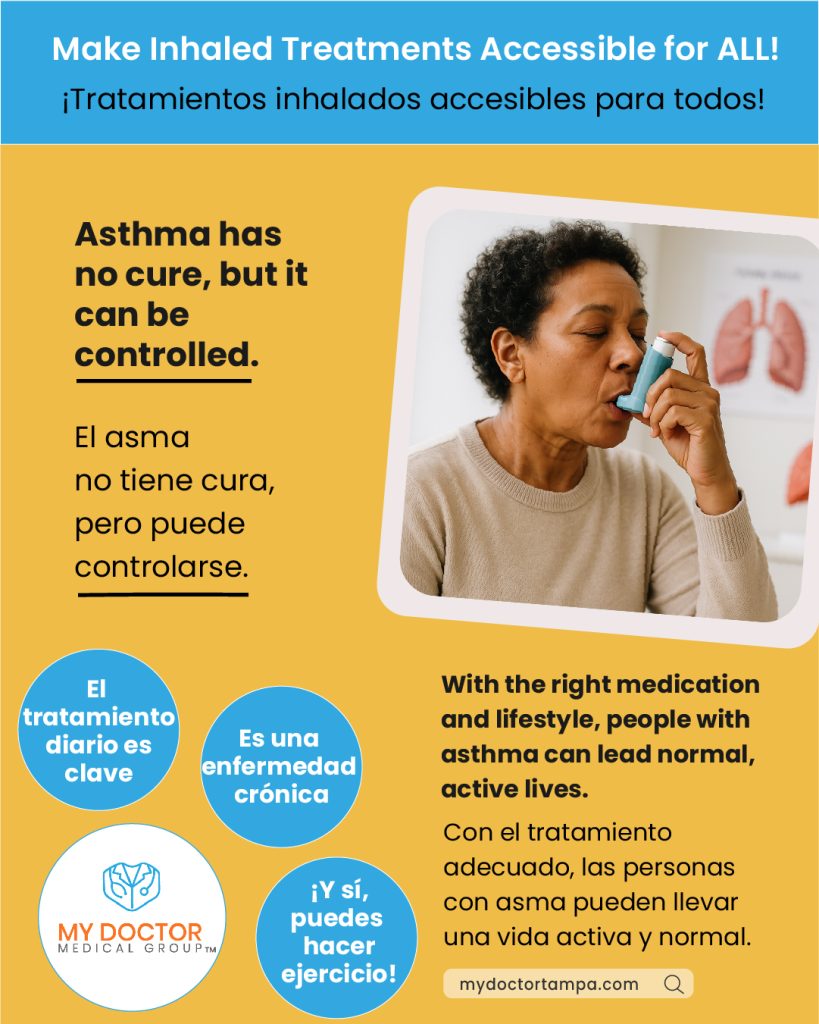Every year, World Asthma Day offers a crucial opportunity to shine a spotlight on a chronic respiratory condition that affects millions of people around the globe. In 2025, the campaign renews its energy around a vital mission: improving understanding, dispelling myths, and promoting more effective asthma management worldwide.
Why Do We Celebrate World Asthma Day?
Since 1998, the Global Initiative for Asthma (GINA) has marked this important day with a clear vision: to raise awareness about the urgency of early diagnosis and appropriate treatment for asthma. This annual event acts as a beacon, highlighting the significant impact asthma has on quality of life and advocating for public health policies that support comprehensive asthma care.
Despite being a manageable disease, asthma continues to be underdiagnosed and undertreated in many countries. Through educational initiatives like World Asthma Day, the goal is to expand access to effective therapies and reduce the burden asthma places on healthcare systems worldwide.
World Asthma Day 2025: A Renewed Focus on Education and Control
Under the inspiring theme “Know Asthma, Control Asthma,” World Asthma Day 2025 places special emphasis on strengthening asthma education, targeting both patients and healthcare professionals. The primary goal is to empower individuals living with asthma by providing them with the knowledge they need to manage their symptoms, recognize when to seek medical help, and lead full, active lives despite their diagnosis.
Around the world, multiple strategies are being implemented to enhance the quality of life for people with asthma. These include interactive educational workshops, free spirometry screening events to aid in diagnosis, and dynamic social media campaigns emphasizing the importance of following prescribed treatments and managing known risk factors such as smoking, environmental pollution, and obesity.

Debunking Common Asthma Myths
Dispelling misconceptions about asthma is critical for promoting better disease management. Let’s address some common asthma myths:
Myth 1: “Asthma is only a childhood disease.”
Reality: While asthma is common in childhood, it can develop at any age. Adult-onset asthma is a significant reality and can be more severe if not properly diagnosed and treated.
Myth 2: “If I don’t have symptoms, I can stop taking my medication.”
Reality: Asthma is a chronic inflammatory disease of the airways. Even when symptoms are not present, inflammation can persist. It’s essential to adhere to prescribed treatments consistently to prevent future attacks or exacerbations. Continuous control is key to reducing hospitalizations and improving overall quality of life.
Myth 3: “People with asthma can’t exercise.”
Reality: With proper medical management, people with asthma not only can but should engage in regular physical activity. Exercise can strengthen the lungs and enhance overall respiratory function. Activities like walking, swimming, and yoga, under medical supervision, are excellent options for individuals with controlled asthma.
A Call to Action: The Public Health Impact of Asthma
According to the World Health Organization (WHO), approximately 262 million people worldwide are living with asthma, and in 2019, the disease caused over 450,000 deaths. The good news is that with early diagnosis and effective treatment, most cases of asthma can be controlled, preventing severe complications and significantly improving patients’ lives.
Strengthening healthcare systems, ensuring equitable access to quality inhalers, and promoting ongoing education for both patients and healthcare providers are essential pillars in reducing the global burden of asthma.
This World Asthma Day 2025, let’s unite to know asthma, control asthma, and build a future where everyone living with this condition can breathe easier and live fully. Share this information and be part of the change!
Need a doctor nearby? If you’re in Tampa or Brandon, FL, we invite you to discover our services or call us at (813)280-4909 ( Tampa Location ) , (813) 697-1888 ( Brandon Location )
Sources:
GINA (Global Initiative for Asthma)
Organización Mundial de la Salud
